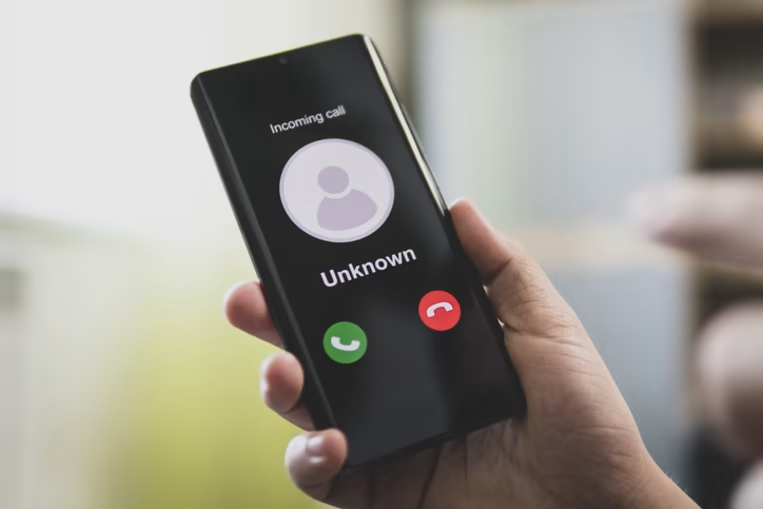Robocalls have become an increasing nuisance in today’s digital age, with scammers finding new ways to exploit unsuspecting individuals. One such fraudulent scheme that has garnered attention is the 9786222867 fake police charity robocall. This article aims to shed light on this scam and provide valuable insights into protecting oneself from falling victim to it.
What is a Robocall?
Before delving into the specifics of the 9786222867 scam, it’s crucial to understand what a robocall is. A robocall is an automated phone call that delivers a pre-recorded message to the recipient. While some robocalls serve legitimate purposes, such as appointment reminders or informational broadcasts, many are used for malicious intent, including scams and fraudulent schemes.
Rise of Fake Charity Scams
In recent years, there has been a concerning rise in fake charity scams perpetrated through robocalls. Scammers often pose as representatives of reputable organizations or law enforcement agencies, exploiting people’s generosity for their gain. These scams not only result in financial losses for victims but also undermine public trust in legitimate charitable causes.
Understanding the 9786222867 Scam
How does the scam work?
The 9786222867 scam typically begins with an automated robocall claiming to represent a police charity or law enforcement agency. The message may convey a sense of urgency, urging recipients to donate to support local law enforcement initiatives or assist officers in need. To further manipulate victims, scammers may use tactics such as spoofing caller IDs to make the call appear legitimate.
Tactics used by scammers
Scammers employ various tactics to persuade individuals to donate to their fraudulent cause. These may include offering fake incentives, such as special recognition or exclusive benefits for donors, and employing high-pressure tactics to coerce immediate contributions. Additionally, scammers may use sophisticated language and official-sounding terminology to deceive recipients into believing the call is authentic.
Impact on Victims
The consequences of falling victim to the 9786222867 fake police charity robocall can be significant, both financially and emotionally.
Financial losses
Many victims of charity scams experience substantial financial losses, often donating large sums of money under false pretenses. These losses can have long-lasting repercussions, particularly for vulnerable individuals or those on fixed incomes.
Emotional distress
In addition to financial harm, victims may also experience emotional distress and feelings of betrayal upon realizing they’ve been deceived. Trust in charitable organizations and law enforcement may be eroded, making individuals more hesitant to contribute to legitimate causes in the future.
How to Identify Fake Charity Robocalls
Recognizing the signs of a fake charity robocall is essential for protecting oneself from falling victim to scams. Some red flags to watch out for include:
- Unsolicited calls requesting donations.
- High-pressure tactics or urgent appeals for immediate contributions.
- Requests for payment via unconventional methods, such as wire transfers or gift cards.
- Inability or reluctance to provide detailed information about the charity or how donations will be used.
Steps to Take if You Receive a Suspicious Call
If you receive a suspicious robocall, take the following steps:
- Hang up immediately without providing any personal or financial information.
- Do not engage with the caller or press any buttons as instructed.
- Report the call to the appropriate authorities, such as the Federal Trade Commission (FTC) or the Federal Communications Commission (FCC).
- Consider blocking the number to prevent future calls from the same source.
Reporting Scam Calls
Reporting scam calls is crucial for helping authorities track down and prosecute fraudulent actors. Both the FTC and FCC provide online platforms for reporting unwanted calls, including robocalls and other scams. By reporting suspicious activity, individuals can contribute to efforts to combat phone fraud and protect others from falling victim to similar schemes.
Legal Actions Against Robocall Scammers
In recent years, there has been increased scrutiny and legal action taken against robocall scammers. Law enforcement agencies and regulatory bodies are actively pursuing cases against individuals and organizations engaged in illegal robocall activities. Penalties for violating anti-robocall laws can include hefty fines, civil lawsuits, and even criminal charges in severe cases.
Protecting Yourself from Robocall Scams
While it may be challenging to completely eliminate robocalls, there are steps individuals can take to reduce their risk of falling victim to scams:
- Register for the National Do Not Call Registry to limit the number of unsolicited calls received.
- Use call-blocking apps or services to screen and block unwanted calls automatically.
- Be cautious about sharing personal information, especially over the phone, and verify the legitimacy of any charity or organization before donating.
Public Awareness and Education Efforts
Public awareness and education are critical components in the fight against robocall scams. Government agencies, consumer advocacy groups, and telecommunications providers are working together to raise awareness about common scams and educate the public on how to protect themselves. By staying informed and vigilant, individuals can better safeguard their finances and personal information from fraudulent actors.
Conclusion
The 9786222867 fake police charity robocall is just one example of the numerous scams targeting unsuspecting individuals every day. By understanding how these scams operate and taking proactive measures to protect oneself, individuals can minimize their risk of falling victim to fraudulent schemes. Through continued vigilance, public awareness, and collaborative efforts between stakeholders, we can work towards creating a safer and more secure telecommunications environment for all.

